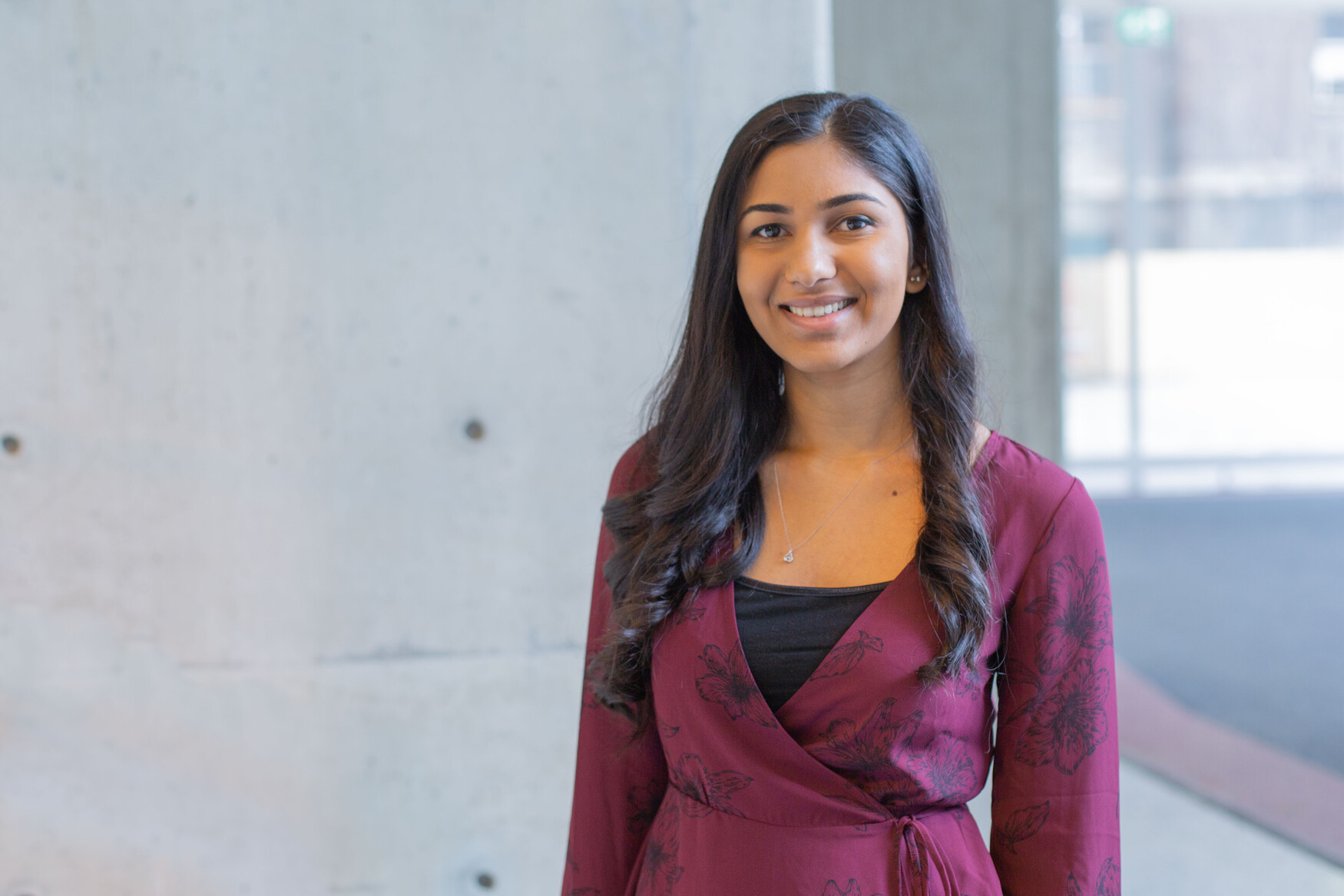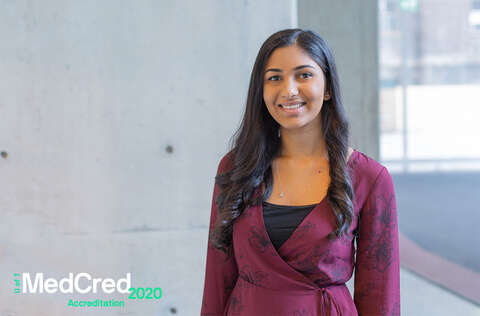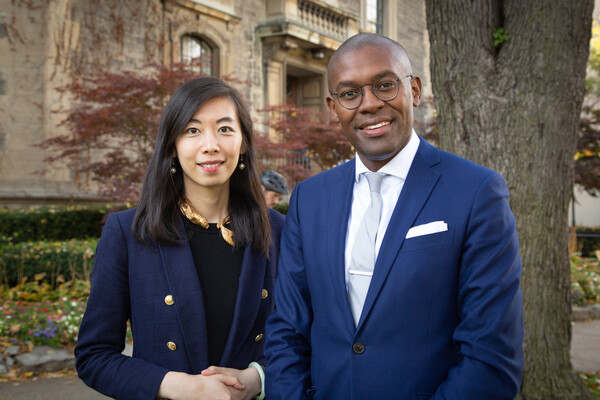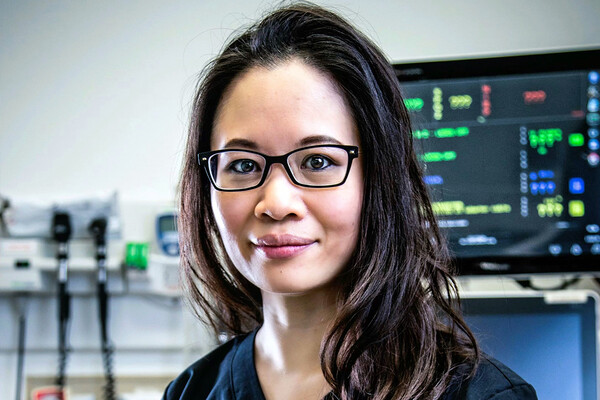Breadcrumbs
- Home
- MD/PhD Program
- News
- Faces of U of T Medicine: Spandana Amarthaluru
Faces of U of T Medicine: Spandana Amarthaluru


In the next several weeks, students across all four years of the MD Program will be invited to share their opinions about medical education at U of T through the Independent Student Analysis (ISA). The survey is a critical part of the accreditation process, which helps ensure the quality of medical education in Canada. The Committee on Accreditation of Canadian Medical Schools (CACMS) provides the foundation for the survey, but students at each school also lead the development of additional questions to probe specific elements of the experience at each university. Spandana Amarthaluru is second-year medical student and an accreditation co-lead for the Class of 2T1. She recently shared her thoughts about the experience with writer Erin Howe.
How long have you been involved with the ISA and accreditation?
I’ve been involved with the ISA team since October 2018. Although it’s only been a few months, I’ve learned so much about the accreditation process and the CACMS.
How excited are you to launch the ISA to your colleagues?
Given my interest in medical education, this year I joined the Students as Teachers (SAT) program. Through this experience, I’ve gotten to hear about how the new Foundations Curriculum was designed and the principles behind it. Hearing about how medical schools used to work ten or even twenty years ago, I’m grateful our new curriculum has such a great focus on clinical experience and case-based learning as opposed to spending countless hours in a lecture room. As a result, I’m really excited to launch the ISA and hear more feedback from my colleagues.
What was your favourite part of helping develop the additional questions to add to the ISA?
It gave me a chance to reflect on my time at U of T so far. Our team crafted the additional questions so that they would give students the chance to comment on and provide feedback regarding all the different aspects of U of T Med like extra-curriculars, faculty support, the learning environment and more. I think medical school can be very stressful and overwhelming at times, so reflecting on the various aspects of U of T Med as we wrote these questions allowed me to revisit all my positive experiences and appreciate how much I’ve learned so far.
What inspired you to become involved with the ISA?
I’ve always had a longstanding interest in education and pedagogy. In fact, if I wasn’t in medicine, I’m certain I’d be pursuing a career in teaching. The ISA seemed like the perfect opportunity to combine my passions for medicine and education in a way that would benefit my peers and future medical students.
What do you want your classmates to know about the ISA?
The accreditation process only takes place every eight years so our class is lucky to be able to participate in the ISA and have our voices heard. It’s a rare opportunity to highlight areas of improvement regarding our experience as U of T medical students. Conversely, it’s also a great way to reflect on the most enriching aspects of our time here. I believe it’s particularly important for our class to participate in the ISA survey so that we can shape the medical program at U of T for the benefit of future students and colleagues.
What do you enjoy doing when you’re not in school?
Although I don’t have as much time for it as I used to, I love reading. Currently, I’m reading Quiet by Susan Cainwhich was given to me by a mentor I worked with in the summer. I’m also lucky to have a great group of friends who fully support my obsession with food, so we spend a lot of time trying out new recipes together. Aside from that, I’m also a fan of pilates and am excited to start a kickboxing class I’ve signed up for!
For more information about accreditation, visit uoft.me/medcred.
News


